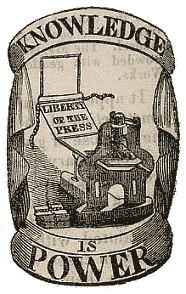



"In a time of economic calamity, it is expected that people look to their governments for answers. However, plausible solutions to the current economic crisis do not lie in more direct government intervention, which will prolong the crisis by adding more risk and uncertainty. Furthermore, governments' stimulus packages should not be based on handing out cash or shortsighted populism. Nor they should target one group or industry: Such packages should benefit the whole economy. To achieve maximum impact, the state should guarantee market rules and reassure market confidence.
In doing so, as President of the European Central Bank Jean-Claude Trichet pointed out, governments will have to "reassure [their] own people that [they] have an exit strategy, to reassure households that [they] are not putting in jeopardy the situation of the children, and to reassure businesses that what is done today is not done to the detriment of their own taxation in the years to come."
Source:Tony Blankley
"Yet economic freedom, like other freedoms, is always vulnerable. History demonstrates that this is never more so than when politicians espouse populist rhetoric, playing to people's fears and calling for more government interventions that promise a quick fix to whatever is deemed faulty in a complex economy. Politicians and leaders increasingly disparage free markets and push for counterproductive regulatory rules, increase costs on investment, or, worse, pursue protectionist policies that curtail global economic growth.
As the direct opposite of government interference and control, economic freedom is a threat only to those who want special privileges by pressuring societies to expand the size and weight of government intervention.
The world must not be discouraged from pursuing greater economic freedom. The G-20 should take this week's summit as an opportunity to renew their commitment to economic freedom.
Source:
Anthony B. Kim is Policy Analyst in the Center for International Trade and Economics at The Heritage Foundation".
"The massive programs designed to rescue the nation's financial sector are operating without adequate oversight, with vague goals and limited disclosure of their details to the taxpayers who are paying for them, government watchdogs told a Senate panel Tuesday.
The Troubled Asset Relief Program, or TARP, was launched in the midst of last fall's collapse of the nation's banking system and is designed to get loans flowing to businesses and individuals.
But "without a clearer explanation" about parts of the program, "it is not possible to exercise meaningful oversight over Treasury's actions," said Elizabeth Warren, a Harvard Law School professor who leads a special congressional oversight panel monitoring the TARP program. Her comments came in a Senate Finance Committee hearing on the bailout program.
Noting that TARP passed Congress six months ago, Warren said that her group has repeatedly called on the Treasury Department to provide a clear strategy for the program — and that "the absence of such a vision hampers effective oversight."
Although she has asked Treasury to explain its strategy, "Congress and the American public have no clear answer to that question."
TARP is one of several programs the government has launched in recent months to help ailing institutions and even bolster healthy banks. Warren singled out one program, known as TALF, for appearing to involve "substantial downside risk and high costs for the American taxpayer" while offering big potential rewards for private interests. She said the public information about that program was "contradictory, promoting substantial confusion."
The Government Accountability Office shared some of the same concerns, saying in a new report that "Treasury continues to struggle with developing an effective overall communication strategy" for the TARP program.
Beyond that, the GAO's report pointed out the difficulty in even measuring whether TARP is working. As of March 27, the Treasury Department had handed out more than $300 billion of the $700 billion in approved TARP funds, the GAO said".Source: MCCLATCHY NEWS SERVICE
Despite this cogent advice about what apparently has failed, and suggestions how to save and promote the present free enterprise system. President Obama and his cohorts in Congress are racing to shape the USA economy as a socialist economy with the government defining all matters related to our way of life.
A failed policy in Europe and Great Britain that they are suffering under at the present time.The welfare state that Obama wants for the USA is a backwards step away from the Constitution and Bill of Rights that is BAD for all but the neo-communists and hard core socialists who are cheering Obama and company to move fast before America wakes up!
"The US emphasis on a global fiscal stimulus creates an unfortunate and unnecessary tension. First, European governments have higher taxes and more social guarantees, so that there is already a large automatic fiscal stimulus when output falls. More fundamentally, European leaders rightly question the cost-benefit calculation of spending wildly to fight the recession. Ultimately the debts must be repaid, and many European countries already are facing grim fiscal calculations between the prospective costs of bailing out their own financial system (as well as weaker states in Europe), together with adverse demographics.
"President Obama should downplay this issue. The US is in no position to be lecturing anyone on macroeconomic policy right now. Of course the leaders must take steps to ensure that the world’s poor do not become collateral damage to the financial crisis. The head of the UN is quite right to worry about a collapse of aid in the face of growing fiscal constraints".
Comments excerpted from speech by THE EU PRESIDENT








No comments:
Post a Comment